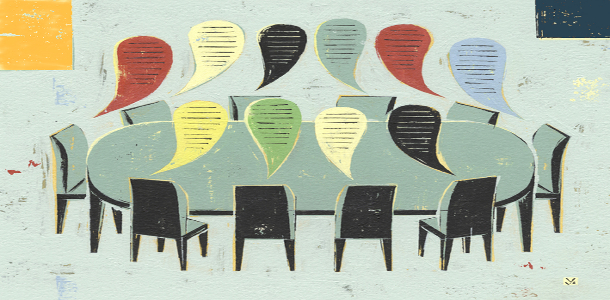




Posted by laurajane on Nov 12, 2014 in Uncategorized | Comments Off on 11 of your writing eccentricities
11 of your writing eccentricities
It turns out – PR Daily readers – that your writing eccentricities are considerably more interesting than mine. A few posts ago, I wrote about my one of my writing eccentricities . . . my abhorrence of periods in phone numbers. I also asked PR Daily readers to confess and share their idiosyncrasies, eccentricities, and funny writing habits. Here’s what you said. “I… am… obsessed… with… ellipses! (And you are right, not only is it annoying when folks use periods in phone numbers, it often fouls up smart phones on call-backs. Memo to your...

Posted by laurajane on Nov 5, 2014 in Uncategorized | Comments Off on 17 words that aren’t spelled like they sound
17 words that aren’t spelled like ...
Sometimes the rules of English spelling make no sense. The reason for the confusion is the diverse origins of English words. German, Latin, French, and Greek are all common sources, and each language follows a different set of rules for spelling. Even the best spellers—including those who avidly read PR Daily—can be tripped up by the irregularities of English spelling. Perhaps it’s because there are so many English words that aren’t spelled the way they sound. Below are a few of the most befuddling ones. (Click on the word for an audible...

Posted by laurajane on Oct 29, 2014 in Uncategorized | Comments Off on What are your writing eccentricities?
What are your writing eccentricities?
Writers can be an eccentric bunch. Edith Wharton wrote by cutting and pasting scraps of paper together. Sir Walter Scott wrote most of Marmion while riding a horse. Edgar Allen Poe often wrote with his cat in his lap or perched on his right shoulder. When Victor Hugo was feeling distracted, he would write naked to be totally alone with his pen and paper. Throughout my career in corporate communications, I have cultivated many writing eccentricities. Now that I’m thinking about it, I have more eccentricities than I care to count. But the one I’ll admit to involves phone...

Posted by laurajane on Oct 22, 2014 in Uncategorized | Comments Off on The importance of starting with the “why”
The importance of starting with the R...
Good communicators know the importance of “starting with the why.” Whether you’re telling customers about a price increase, employees about changes in company policy, or encouraging people to get a flu shot, leading with the “why” helps everyone understand the purpose of your message right up front. Here’s an example: Because we are uncertain of the health risks associated with the use of electronic cigarettes, these devices have been banned at all facilities. The usefulness of this technique was recently made clear to me by my 11-year-old son, in...

Posted by laurajane on Oct 15, 2014 in Uncategorized | Comments Off on 11 of your favorite made-up words












